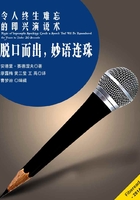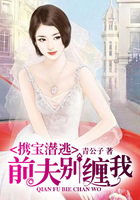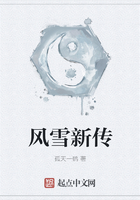Laura had spent some thoughtful hours upon her black lace dress with results that astonished her family: it became a ball-gown--and a splendidly effective one. She arranged her dark hair in a more elaborate fashion than ever before, in a close coronal of faintly lustrous braids; she had no jewellery and obviously needed none. Her last action but one before she left her room was to dispose of the slender chain and key she always wore round her neck; then her final glance at the mirror--which fairly revealed a lovely woman--ended in a deprecatory little "face" she made at herself. It meant: "Yes, old lady, you fancy yourself very passable in here all by yourself, don't you? Just wait: you'll be standing beside Cora in a moment!"
And when she did stand beside Cora, in the latter's room, a moment later, her thought seemed warranted. Cora, radiant-eyed, in high bloom, and exquisite from head to foot in a shimmering white dancing-dress, a glittering crescent fastening the silver fillet that bound her vivid hair, was a flame of enchantment. Mrs. Madison, almost weeping with delight, led her daughters proudly, an arm round the waist of each, into her husband's room. Propped with pillows, he reclined in an armchair while Miss Peirce prepared his bed, an occupation she gave over upon this dazzling entrance, departing tactfully.
"Look at these," cried the mother; "--from our garden, Jim, dear! Don't we feel rich, you and I?"
"And--and--Laura," said the sick man, with the slow and imperfect enunication caused by his disease; "Laura looks pretty--too."
"Isn't she adorable!" Cora exclaimed warmly. "She decided to be the portrait of a young duchess, you see, all stately splendour--made of snow and midnight!"
"Hear! hear!" laughed Laura; but she blushed with pleasure, and taking Cora's hand in hers lifted it to her lips.
"And do you see Cora's crescent?" demanded Mrs. Madison.
"What do you think of THAT for magnificence? She went down town this morning with seven dollars, and came back with that and her party gloves and a dollar in change! Isn't she a bargainer? Even for rhinestones they are the cheapest things you ever heard of. They look precisely like stones of the very finest water." They did--so precisely, indeed, that if the resemblance did not amount to actual identity, then had a jeweller of the town been able to deceive the eye of Valentine Corliss, which was an eye singularly learned in such matters.
"They're--both smart girls," said Madison, "both of them.
And they look--beautiful, to-night--both. Laura is--amazing!"
When they had gone, Mrs. Madison returned from the stairway, and, kneeling beside her husband, put her arms round him gently: she had seen the tear that was marking its irregular pathway down his flaccid, gray cheek, and she understood.
"Don't. Don't worry, Jim," she whispered. "Those bright, beautiful things!--aren't they treasures?"
"It's--it's Laura," he said. "Cora will be all right. She looks out for--herself. I'm--I'm afraid for--Laura. Aren't you?"
"No, no," she protested. "I'm not afraid for either of them." But she was: the mother had always been afraid for Cora.
. . . . At the dance, the two girls, attended up the stairway to the ballroom by a chattering covey of black-coats, made a sensational entrance to a gallant fanfare of music, an effect which may have been timed to the premonitory tuning of instruments heard during the ascent; at all events, it was a great success; and Cora, standing revealed under the wide gilt archway, might have been a lithe and shining figure from the year eighteen-hundred-and-one, about to dance at the Luxembourg. She placed her hand upon the sleeve of Richard Lindley, and, glancing intelligently over his shoulder into the eyes of Valentine Corliss, glided rhythmically away.
People looked at her; they always did. Not only the non-dancers watched her; eyes everywhere were upon her, even though the owners gyrated, glided and dipped on distant orbits.
The other girls watched her, as a rule, with a profound, an almost passionate curiosity; and they were prompt to speak well of her to men, except in trustworthy intimacy, because they did not enjoy being wrongfully thought jealous. Many of them kept somewhat aloof from her; but none of them ever nowadays showed "superiority" in her presence, or snubbed her: that had been tried and proved disastrous in rebound. Cora never failed to pay her score--and with a terrifying interest added, her native tendency being to take two eyes for an eye and the whole jaw for a tooth. They let her alone, though they asked and asked among themselves the never-monotonous question: "Why do men fall in love with girls like that?" a riddle which, solved, makes wives condescending to their husbands.
Most of the people at this dance had known one another as friends, or antagonists, or indifferent acquaintances, for years, and in such an assembly there are always two worlds, that of the women and that of the men. Each has its own vision, radically different from that of the other; but the greatest difference is that the men are unaware of the other world, only a few of them--usually queer ones like Ray Vilas--vaguely perceiving that there are two visions, while all the women understand both per-fectly. The men splash about on the surface; the women keep their eyes open under water. Or, the life of the assembly is like a bright tapestry: the men take it as a picture and are not troubled to know how it is produced; but women are weavers.















